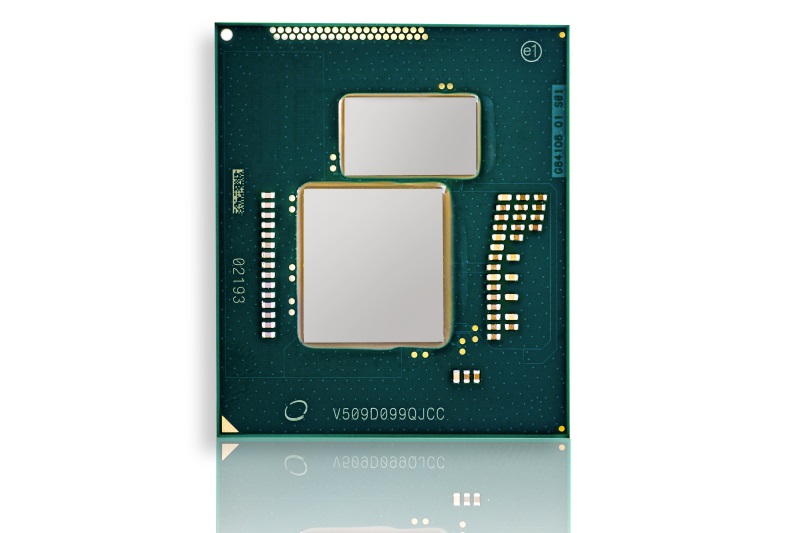- Home
- Laptops
- Laptops News
- Intel Officially Kills Overclocking of Locked CPUs With Microcode Update
Intel Officially Kills Overclocking of Locked CPUs With Microcode Update

Enthusiasts were of course overjoyed, as the cost of overclocking was drastically reduced. Intel never supported these modifications and has maintained its position that pushing the performance of processors not explicitly sold as overclockable will void their warranty, but has now decided to formally close the loophole.
An upcoming microcode update for motherboard manufacturers will strengthen the BCLK (base clock) restrictions on CPUs whose model numbers do not have the K suffix. These companies in turn will have to use the updated microcode in any EFI-BIOS updates that they issue in the future.
The company released a statement to PCWorld, saying "Intel regularly issues updates for our processors which our partners voluntarily incorporate into their BIOS. The latest update provided to partners includes, among other things, code that aligns with the position that we do not recommend overclocking processors that have not been designed to do so. Additionally, Intel does not warranty the operation of the processor beyond its specifications."
Intel cannot directly force users to update, which means that those who have already taken advantage of the loophole do have the option of continuing to do so, but only at the cost of future updates and security fixes - including a fix for the recently discovered Prime95 bug. Motherboards currently sold as supporting non-K overclocking are not likely to remain in the market for long and it is unlikely that any new models will not incorporate the new code.
Overclocking became relatively easier on Skylake processors because Intel decoupled the BCLK from other system clocks, including the PCIe bus and memory bus, which previously became unstable when the BCLK was pushed.
Some overclocking enthusiasts regularly try pushing commodity hardware to unimagined new speeds using exotic cooling mechanisms and often physically modifying them, in order to break records. Others simply enjoy the satisfaction of getting more out of what they have bought. Intel thus restricts official overclocking to its most expensive offerings. Lower-end CPUs such as the Core i3 and Pentium series are never overclockable, with the notable exception of the one-off Pentium Anniversary Edition (Review) CPU in 2014.
For the latest tech news and reviews, follow Gadgets 360 on X, Facebook, WhatsApp, Threads and Google News. For the latest videos on gadgets and tech, subscribe to our YouTube channel. If you want to know everything about top influencers, follow our in-house Who'sThat360 on Instagram and YouTube.
Related Stories
- Samsung Galaxy Unpacked 2025
- ChatGPT
- Redmi Note 14 Pro+
- iPhone 16
- Apple Vision Pro
- Oneplus 12
- OnePlus Nord CE 3 Lite 5G
- iPhone 13
- Xiaomi 14 Pro
- Oppo Find N3
- Tecno Spark Go (2023)
- Realme V30
- Best Phones Under 25000
- Samsung Galaxy S24 Series
- Cryptocurrency
- iQoo 12
- Samsung Galaxy S24 Ultra
- Giottus
- Samsung Galaxy Z Flip 5
- Apple 'Scary Fast'
- Housefull 5
- GoPro Hero 12 Black Review
- Invincible Season 2
- JioGlass
- HD Ready TV
- Laptop Under 50000
- Smartwatch Under 10000
- Latest Mobile Phones
- Compare Phones
- Vivo Y19 5G
- iQOO Z10 Turbo Pro
- iQOO Z10 Turbo
- CMF by Nothing Phone 2 Pro
- Motorola Edge 60
- Motorola Edge 60 Pro
- Motorola Razr 60
- Motorola Razr 60 Ultra
- Asus ROG Zephyrus G16 (2025)
- Asus ROG Zephyrus G14 (2025)
- Honor Pad GT
- Vivo Pad SE
- Moto Watch Fit
- Honor Band 10
- Xiaomi X Pro QLED 2025 (43-Inch)
- Xiaomi X Pro QLED 2025 (55-Inch)
- Asus ROG Ally
- Nintendo Switch Lite
- Toshiba 1.8 Ton 5 Star Inverter Split AC (RAS-24TKCV5G-INZ / RAS-24TACV5G-INZ)
- Toshiba 1.5 Ton 5 Star Inverter Split AC (RAS-18PKCV2G-IN / RAS-18PACV2G-IN)
















